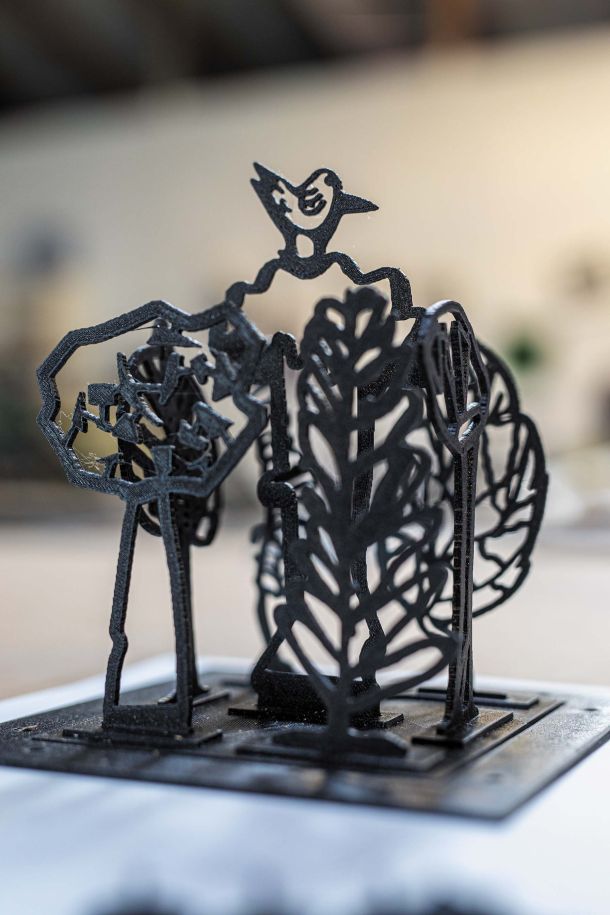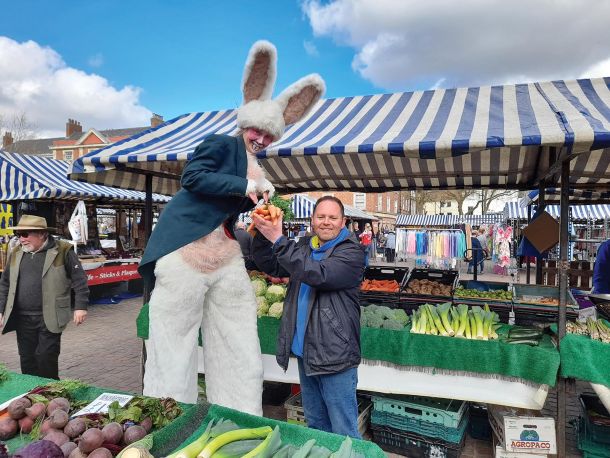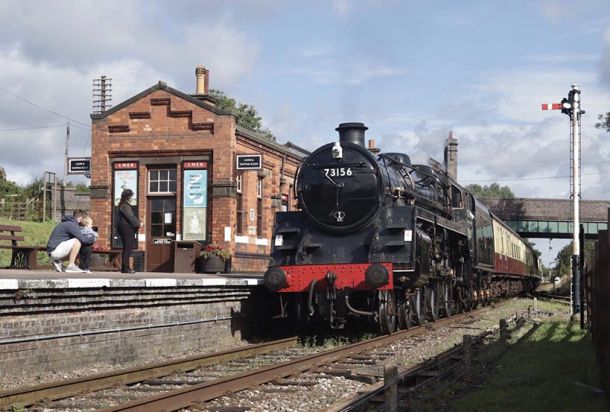Wildlife Friendly Farming

Over the past 60 years, Nottinghamshire Wildlife Trust has worked to protect and enhance some of the most important places for nature in Nottinghamshire. We’re passionate about creating a healthy natural world which benefits us all, by putting nature’s recovery at the heart of everything we do.
Sadly, the UK is one of the most nature depleted countries in the world, with increasingly fragmented remnants of wildlife habitat isolated across our landscapes. To put this right, we have set a goal of securing more space for nature in line with internationally agreed targets. We want to play our role in ensuring that 30% of land in our county is supporting nature’s recovery. This doesn’t necessarily mean creating swathes of new nature reserves but does mean we must change how land is managed - whether through lobbying, influence or partnership.
We are proud of the role our nature reserves play in supporting wildlife. Many of our sites represent the best examples of their habitat in the county, from ancient woodlands to traditional wildflower meadows, but our estate represents a tiny fragment of the county’s land – well short of 1%. We have long known that nature reserves on their own are not enough and we’re committed to achieving landscape-scale improvement.
Here in Nottinghamshire, reaching our goal of 30% of land made wilder equates to approximately 65,000 hectares. Given that all the land, including our nature reserves, in some form of positive management, be it the public forestry estate or parks and open spaces, totals around 18,000 hectares that leaves around 47,000 hectares which must be made wilder. Given that the vast majority, around 70%, of our county and country is farmland, the challenge is clear – to truly make our county wilder, we must influence how land is farmed.
We can achieve this in many ways, such as through pressure on government for changes in policy and funding, influencing the behaviour of consumers to choose products from more sustainable farms and by rolling our sleeves up and working cheek by jowl with farmers here in Nottinghamshire.
Whilst some are keen to promote a narrative that farmers and wildlife conservationists are unlikely bedfellows, we beg to differ. As a locally based charity we have a long history of working with farmers and in recent years we’ve been able to ramp up the provision of advice and practical support for farmers thanks to our partnership with Severn Trent.
Promoting nature friendly farming isn’t just a focus here in Nottinghamshire. How land is managed has a big impact on wildlife and agriculture policy shapes our countryside. For decades this has often been at the expense of wildlife and natural habitats, and The Wildlife Trusts are working with farmers and governments to change this. The recovery of wildlife in the UK depends on a farming policy which enables farmers to create and restore a thriving natural environment alongside domestic food production.
The Wildlife Trust care for over 100,000 hectares of land across the UK, much of which is farmland. They own 26 working farms ranging from lowland arable as you might find here in Notts, to hill farms. The Wildlife Trusts give advice to around 5,000 farmers and landowners each year and work to improve agriculture policy for wildlife. Whilst we don’t have a farm here in Nottinghamshire, we do manage areas of hay meadow and the area at Idle Valley Nature Reserve which serves as the base for our nature-based conservation grazing programme is the site of a farm that predates the sand and gravel extraction on the site.
On our nature reserves we practice sustainable environmental land management using techniques such as conservation grazing. The Wildlife Trusts collectively own more than 7,500 grazing animals, including traditional and rare breed sheep and cattle, native ponies, red deer and even water buffalo. We also work with local farmers to help manage wildlife sites. Grazing is the most natural form of management for certain habitats. Livestock can access areas that machinery can’t, and the impacts of grazing are slower than other methods, such as burning or cutting, which means that less-mobile wildlife can thrive.
Here in Nottinghamshire, we work with dozens of farmers, many in the north of the county and in the Sherwood Forest area. Such is the demand for our advice and support that we’re struggling to keep up. Many farmers are keen to welcome wildlife on to their land and increasingly see the benefits of regenerative farming – working with nature with less reliance of chemical pesticides and fertilisers.
Making Space For Nature
One of the key ways we’re working with farmers here in Nottinghamshire is through our Nature Recovery Network in Farmed Landscapes project – a partnership with Severn Trent. The aim is to create new and improve existing habitats within the farmed landscape - whilst recognising that farms must be able to operate commercially to survive.
The project is a crucial part of our efforts to create a wider Nature Recovery Network across the county to help meet our 30% target by 2030. Even small initiatives will create important stepping stones for wildlife and by the end of the year the project will have delivered changes in management across more than 260 hectares of farmland including twelve new farm ponds, over four kilometres of hedgerow creation and enhancement, new habitat for wetland birds including waders such as lapwing.
By working closely with farmers, we can create and improve wildlife corridors and habitat connectivity. These projects enable us to demonstrate the benefits of nature friendly farming to other farmers – our farmer partners advocating new approaches. Steering clear of ‘culture wars’ and highlighting where conservationists and farmers are working together is vital and views of fellow farmers have a real resonance within the wider farming community and this is where our partner farmers come into their own.
Speaking about our work at Little Morton Farm, outside Retford farmer Andy Howard said: “There are times when relatively simple changes to land management can be made to the benefit of wildlife, in this case by creating a habitat feature that actively encourages wild birds to integrate into the commercial agricultural landscape more readily. Wildlife habitat management and modern farming practices do not have to be seen as mutually exclusive activities. We are pleased to be working with Nottinghamshire Wildlife Trust on the scrape project, helping to bring these two worlds together in our own small way.”
As Andy highlighted, the more we can do to bring the worlds of nature conservation and farm production closer the better. We can all do our bit through choosing to support British farmers who use more sustainable farming methods and through making it clear to politicians of all persuasions that we want to see more wildlife friendly farming.
Whilst most of the county is farmed, we mustn’t forget that we can all be part of a people-powered movement for nature’s recovery in other ways too. People all over Nottinghamshire and beyond are already taking action, so why not join them? To map your action – or to support our work with farmers across Nottinghamshire and the UK by becoming a member or making a one-off donation visit nottinghamshirewildlife.org
EVENT 9 Nov 23
An evening with Matt Baker:
Want to hear more about how the worlds of farming and nature can work in harmony – if so, why not join us for a special ‘Evening with Matt Baker MBE’ on Thursday 9th November. With decades of experience on his family farm and almost 15 years as presenter on the BBC’s flagship Countryfile programme we’re sure Matt will offer a great insight.
For further details or to book tickets visit: www.nottinghamshirewildlife.org/events










